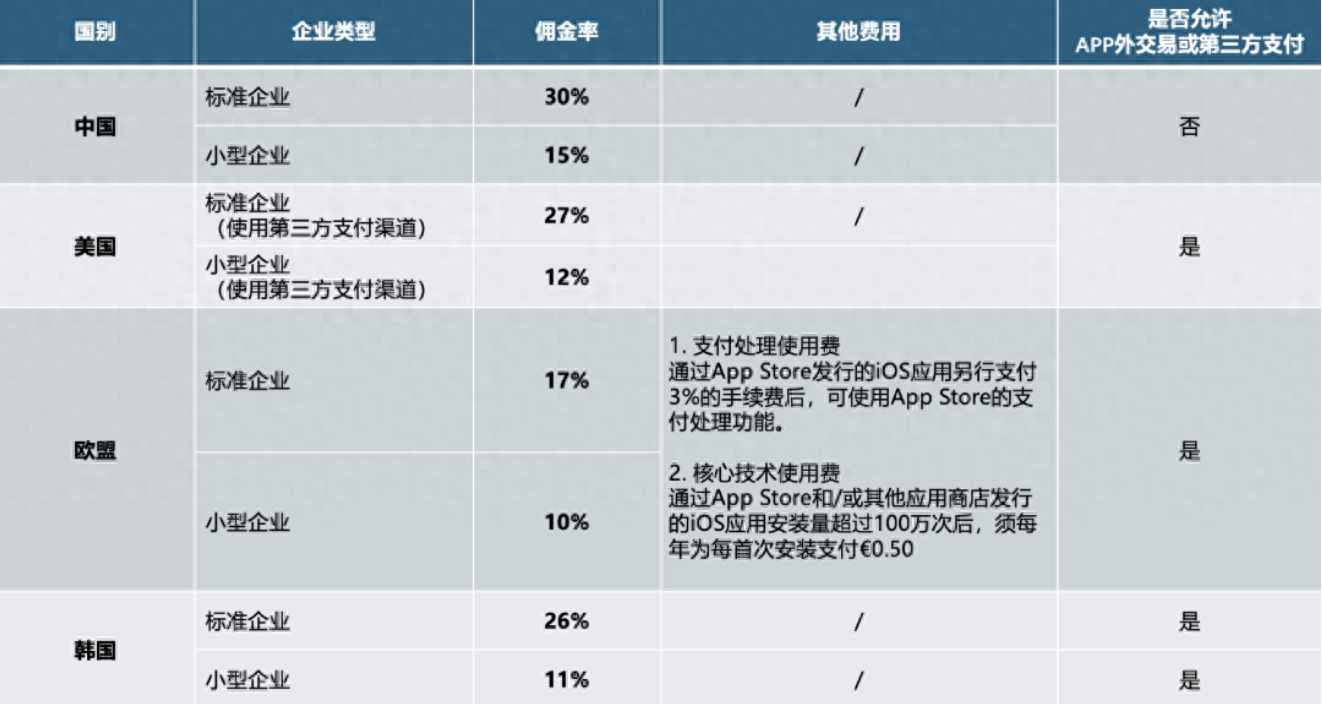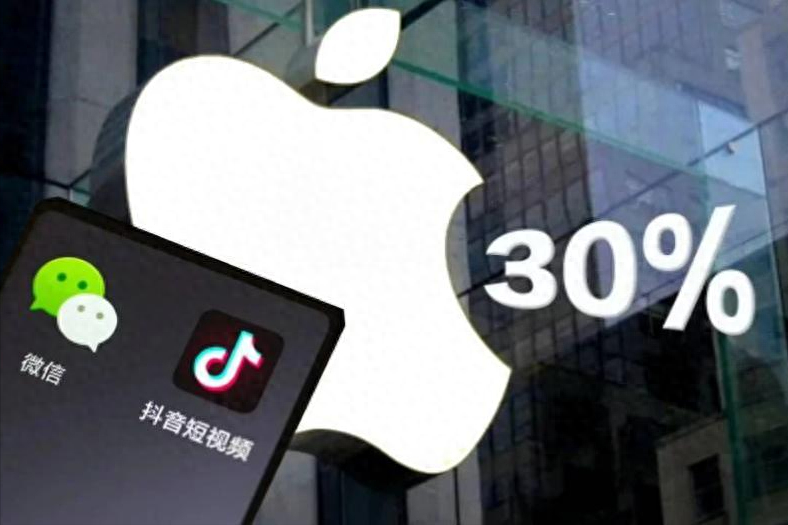Tencent and ByteDance aim to bring Apple back to the negotiation table to challenge the 30% 'Apple Tax'
![]() 09/01 2024
09/01 2024
![]() 582
582
As everyone knows, Apple's App Store ecosystem currently imposes the highest commission rate on China, requiring a 30% cut for all transactions involving subscriptions, tipping, top-ups, or purchases of other digital goods.
In contrast, Apple offers preferential policies in the US, Europe, South Korea, and other regions. In Europe, in particular, Apple has been compelled to reduce its commission rates repeatedly, with the lowest rate reaching just 10%. Furthermore, Apple has also allowed third-party app stores and third-party payments.
However, in China, Apple has steadfastly maintained its 30% commission rate, refusing to budge and prohibiting third-party payments and stores.

As a result, domestic developers have long been engaged in a struggle against Apple. While they have mostly been on the losing end, Tencent managed to secure a victory against Apple in one instance.
Tencent successfully convinced Apple to waive its commission on public account tips and other transactions. In exchange, Apple required that developers also forgo commissions on tips, ensuring that 100% of the proceeds went directly to the content creators. This marked a significant win for Tencent and the only instance of successfully challenging Apple's commission policies to date.

Recently, however, Tencent, ByteDance, and Apple are set to return to the negotiation table to readdress the 30% 'Apple Tax'.
The catalyst for this renewed dialogue stems from Apple's recent pressure on Tencent and ByteDance to address external linking and payment vulnerabilities within their respective apps. Apple demanded that these companies prevent users from being directed to external payment systems, threatening to withhold software updates if they failed to comply.
Specifically, this relates to Tencent's WeChat Mini Programs, where users can be redirected to the customer service centers of game development companies for in-game purchases, and ByteDance's Douyin platform, where similar practices occur during transactions for short video content and virtual courses.

This time around, Tencent has stood firm in its stance. The company has expressed its desire for economically fair and sustainable terms with Apple, indicating that it is willing to commercialize its WeChat Mini Programs on these conditions. Should negotiations fail, Tencent has stated its preference to maintain the status quo rather than proceed with commercialization.
This uncompromising attitude underscores Tencent's determination not to cede 30% of its revenues to Apple. Once this precedent is set, reversing it would be exceedingly difficult. ByteDance has reportedly adopted a similar stance, emphasizing the importance of mutual profitability or the maintenance of the status quo.
Tencent and ByteDance's goal is straightforward: to bring Apple back to the negotiation table and leverage their significant user bases and market influence to achieve their objectives.

Some may wonder why there is such frequent criticism directed at Apple's 30% commission rate, despite similar rates imposed by Android devices and even higher rates for games on some Android vendors. The answer lies in Apple's closed ecosystem.
Apple's closed loop ecosystem leaves developers and users with no alternative but to purchase through the App Store. In contrast, Android's openness allows for various workarounds, making it difficult to substantiate criticism against it. This explains why Apple frequently bears the brunt of criticism.

It remains to be seen whether Tencent and ByteDance will emerge victorious in their negotiations with Apple. Given that commission rates have already been adjusted in Europe, South Korea, and the US, it is increasingly difficult for Apple to justify maintaining its stance in China.
If necessary, government intervention may become a reality, as evidenced by Europe's successful pressure on Apple to make changes.







